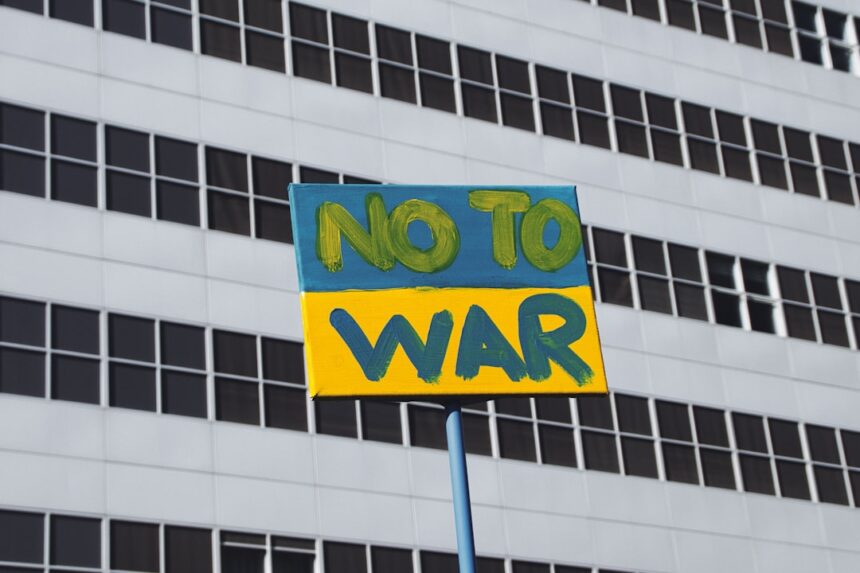The privatization of war has emerged as a significant and contentious issue in contemporary global affairs. As nations grapple with the complexities of modern conflict, the reliance on private military companies (PMCs) has become increasingly prevalent.
Instead, it introduces a landscape where profit-driven organizations play a pivotal role in shaping military engagements and security policies. The implications of this trend are profound, as the lines between public and private responsibilities blur.
The involvement of PMCs in combat operations, logistics, and security services has transformed the dynamics of warfare, often prioritizing efficiency and cost-effectiveness over ethical considerations. This article delves into the historical context, rise, controversies, and future prospects of PMCs, aiming to illuminate the complexities surrounding the privatization of war and its far-reaching consequences.
Key Takeaways
- The privatization of war has led to the rise of private military companies (PMCs) that play a significant role in modern warfare.
- PMCs have a historical background dating back to ancient times, but their influence has grown significantly in recent decades.
- The use of PMCs in modern warfare has sparked controversies due to issues such as accountability, transparency, and human rights violations.
- Privatizing war raises ethical and legal concerns, including the potential for PMCs to operate outside of international law and human rights standards.
- The future of privatizing war presents both challenges and opportunities, requiring careful regulation and oversight to mitigate potential negative impacts on global security and economic stability.
Historical Background of Private Military Companies
The concept of private military companies is not a novel phenomenon; its roots can be traced back to mercenary forces that have existed for centuries. Historically, mercenaries were hired soldiers who fought for financial gain rather than loyalty to a nation-state. These early forms of private military engagement laid the groundwork for the modern PMC industry.
During the medieval period, for instance, European powers often employed mercenaries to bolster their armies, reflecting a long-standing tradition of outsourcing military capabilities. In the late 20th century, the landscape began to shift dramatically with the end of the Cold War. The dissolution of state-sponsored military alliances and the rise of non-state actors created a vacuum that PMCs were quick to fill.
The Gulf War in the early 1990s marked a turning point, as private contractors were employed for various support roles, including logistics and security. This trend continued into the 21st century, particularly during the wars in Iraq and Afghanistan, where PMCs became integral to military operations. The historical evolution of PMCs illustrates a gradual acceptance of privatized warfare as a viable alternative to traditional military engagement.
The Rise of Private Military Companies in Modern Warfare

The rise of private military companies in modern warfare can be attributed to several interrelated factors. One significant driver is the increasing complexity of contemporary conflicts, which often involve asymmetric warfare and non-state actors. Traditional military forces may struggle to adapt to these new realities, leading governments to seek external expertise and flexibility that PMCs can provide.
These companies offer specialized skills, rapid deployment capabilities, and a level of operational agility that state militaries may find challenging to match. Moreover, the financial motivations behind privatizing military operations cannot be overlooked. Governments facing budget constraints are often drawn to PMCs as a cost-effective solution for fulfilling security needs without the long-term commitments associated with maintaining standing armies.
This economic rationale has led to a proliferation of PMCs that offer a range of services, from combat support to intelligence gathering. As a result, these companies have become key players in shaping military strategies and outcomes in various conflict zones around the world.
The Controversies Surrounding the Use of Private Military Companies
| Controversy | Details |
|---|---|
| Human Rights Violations | Reports of abuse and misconduct by private military contractors. |
| Lack of Accountability | Difficulty in holding private military companies accountable for their actions. |
| Transparency Issues | Lack of transparency in the operations and contracts of private military companies. |
| Conflict of Interest | Concerns about private military companies prioritizing profit over ethical considerations. |
The increasing reliance on private military companies has sparked significant controversy and debate. Critics argue that outsourcing military functions undermines accountability and transparency in warfare. Unlike traditional military personnel who operate under strict codes of conduct and legal frameworks, PMCs often operate in a legal gray area, raising concerns about their adherence to international humanitarian law.
Incidents involving PMCs, such as the infamous Blackwater shootings in Iraq, have highlighted the potential for abuse and misconduct when private entities are entrusted with lethal force. Furthermore, the use of PMCs raises ethical questions about the commodification of violence. When profit motives drive military engagements, there is a risk that decisions may prioritize financial gain over humanitarian considerations.
This commodification can lead to a devaluation of human life and exacerbate existing conflicts rather than contribute to resolution. The controversies surrounding PMCs underscore the need for robust oversight mechanisms to ensure that their operations align with ethical standards and respect for human rights.
The Ethical and Legal Implications of Privatizing War
The ethical and legal implications of privatizing war are complex and multifaceted. On one hand, proponents argue that PMCs can enhance operational efficiency and provide necessary expertise in situations where state militaries may be ill-equipped or unwilling to intervene. However, this perspective often overlooks the potential for ethical violations and legal ambiguities that arise when private entities engage in armed conflict.
One significant concern is the lack of accountability for PMCs operating in conflict zones. Unlike state actors who are subject to international law and oversight mechanisms, PMCs may evade scrutiny due to their corporate status. This lack of accountability can lead to violations of human rights and international humanitarian law without recourse for victims or affected communities.
Additionally, the legal frameworks governing PMCs remain underdeveloped, creating challenges in prosecuting misconduct or holding companies accountable for their actions on the battlefield.
The Role of Private Military Companies in Conflict Zones

In conflict zones around the world, private military companies play diverse roles that extend beyond traditional combat operations. They often provide essential support services such as logistics, training, intelligence analysis, and security for both military personnel and civilian contractors. This multifaceted involvement allows PMCs to fill critical gaps in capabilities that state militaries may struggle to address effectively.
Moreover, PMCs frequently operate in environments where state authority is weak or contested. In such contexts, they may serve as stabilizing forces or protectors for vulnerable populations and infrastructure. However, this dual role raises questions about their motivations and objectives.
While they may contribute to short-term stability, their presence can also complicate long-term peacebuilding efforts by perpetuating cycles of violence or fostering dependency on external actors.
The Influence of Private Military Companies on Global Security
The influence of private military companies on global security is profound and far-reaching. As these entities become increasingly integrated into national security strategies, they shape not only military outcomes but also geopolitical dynamics. The proliferation of PMCs has led to a shift in how states approach conflict resolution and security provision, often prioritizing expediency over comprehensive strategies that address root causes.
Additionally, PMCs can exacerbate existing power imbalances within conflict zones. Their involvement may empower certain factions while marginalizing others, leading to further instability and violence. The global nature of many PMCs also means that their actions can have repercussions beyond national borders, affecting regional security dynamics and international relations.
As such, understanding the influence of PMCs on global security requires a nuanced analysis that considers both their operational roles and broader implications for peace and stability.
The Economic Impact of Outsourcing War to Private Companies
The economic impact of outsourcing war to private companies is significant and multifaceted. On one hand, governments may perceive cost savings by contracting out military functions to PMCs rather than maintaining large standing armies or deploying regular troops. This financial rationale can lead to short-term budgetary relief; however, it often overlooks long-term costs associated with potential conflicts arising from privatized warfare.
Moreover, the growth of the PMC industry has created a lucrative market for defense contractors and private security firms. This economic incentive can drive competition among companies vying for government contracts, leading to innovations in military technology and operational strategies. However, it also raises concerns about prioritizing profit over ethical considerations in conflict situations.
The economic motivations behind privatizing war can create perverse incentives that prioritize financial gain over humanitarian outcomes.
The Regulation and Oversight of Private Military Companies
The regulation and oversight of private military companies remain critical challenges in addressing the complexities associated with privatized warfare. Currently, there is no comprehensive international legal framework governing PMCs, leading to significant variations in how they are regulated across different jurisdictions. Some countries have implemented national laws aimed at overseeing PMC activities; however, enforcement remains inconsistent.
Efforts to establish regulatory frameworks must balance the need for operational flexibility with accountability measures that ensure compliance with international humanitarian law and human rights standards. This includes developing mechanisms for monitoring PMC activities in conflict zones and establishing clear lines of responsibility for misconduct or violations. Without robust oversight, the potential for abuse and exploitation within the PMC industry will persist.
The Future of Privatizing War: Potential Challenges and Opportunities
The future of privatizing war presents both challenges and opportunities as global conflicts continue to evolve. One significant challenge lies in addressing the ethical dilemmas associated with outsourcing military functions to profit-driven entities. As public awareness grows regarding the implications of privatized warfare, there may be increasing pressure on governments to establish stricter regulations and oversight mechanisms for PMCs.
Conversely, there are opportunities for innovation within the PMC industry that could enhance operational effectiveness while adhering to ethical standards. Advances in technology may enable more transparent monitoring of PMC activities and improve accountability measures. Additionally, fostering collaboration between state actors and PMCs could lead to more comprehensive approaches to conflict resolution that prioritize humanitarian considerations alongside operational objectives.
The Complexities of Privatizing War and its Implications
The complexities surrounding the privatization of war underscore a fundamental shift in how societies approach conflict resolution and security provision. While private military companies offer potential benefits in terms of efficiency and expertise, their involvement raises critical ethical and legal questions that cannot be ignored. As nations navigate this evolving landscape, it is essential to strike a balance between leveraging the capabilities of PMCs while ensuring accountability and adherence to international norms.
Ultimately, understanding the implications of privatizing war requires a nuanced analysis that considers historical contexts, contemporary challenges, and future prospects. As global conflicts continue to unfold, addressing these complexities will be crucial in shaping a more just and equitable approach to warfare that prioritizes human rights and dignity above all else.
In recent years, the trend of outsourcing military operations to private companies has sparked significant debate and analysis. This practice, often seen as a way to reduce costs and increase efficiency, raises questions about accountability and the ethical implications of privatizing warfare. For a deeper exploration of this topic, you can read a related article on the subject by visiting In The War Room. This resource provides insights into the complexities and consequences of involving private entities in military operations, offering a comprehensive look at the modern landscape of warfare.
WATCH THIS! From Tehran to Blackwater: The Real Story
FAQs
What is outsourcing war to private companies?
Outsourcing war to private companies refers to the practice of governments hiring private military and security companies to carry out military and security operations that were traditionally performed by the military.
Why do governments outsource war to private companies?
Governments may outsource war to private companies for a variety of reasons, including cost savings, flexibility, and the ability to access specialized skills and expertise.
What are some examples of private military and security companies?
Examples of private military and security companies include Blackwater (now known as Academi), G4S, DynCorp, and Aegis Defence Services.
What are the potential risks and challenges of outsourcing war to private companies?
Some potential risks and challenges of outsourcing war to private companies include lack of accountability, human rights abuses, and the potential for conflicts of interest.
What regulations and oversight exist for private military and security companies?
There is no international treaty specifically governing private military and security companies, but some countries have implemented regulations and oversight mechanisms to govern their activities. Additionally, there are efforts at the international level to establish standards and guidelines for the industry.




